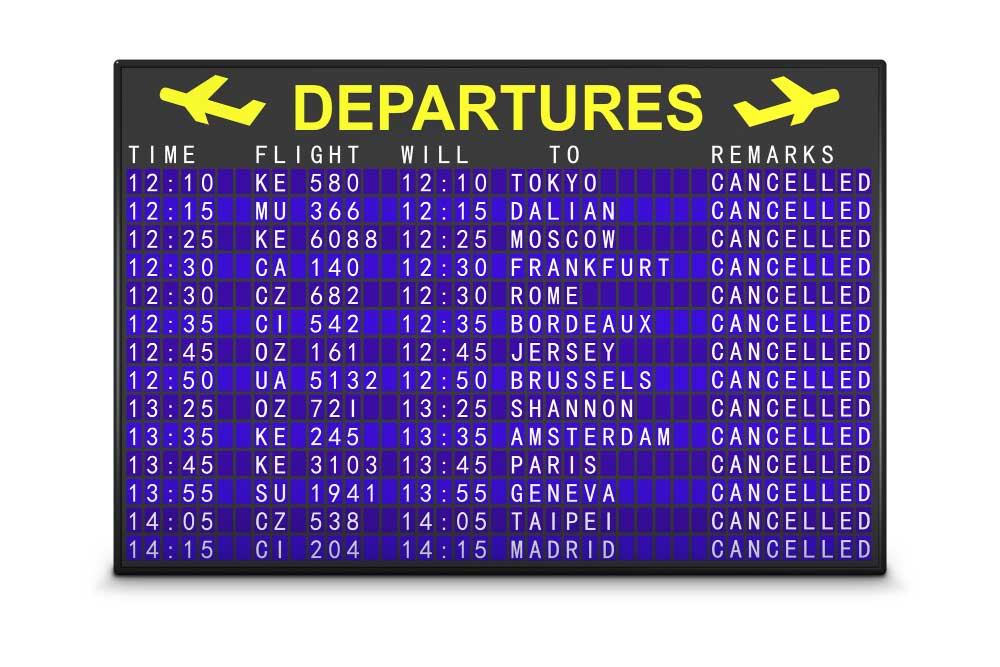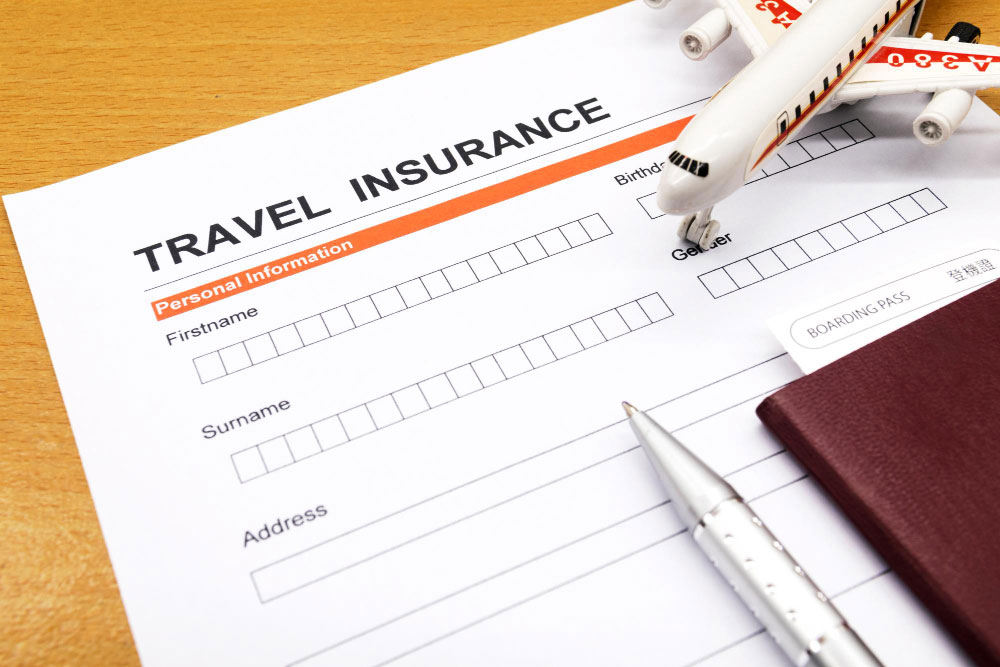What is travel insurance?
Travel insurance is a policy designed to provide cover for travel costs and losses. It’s essential for mitigating the risks of travel emergencies, from minor inconveniences like lost luggage and flight delays to more severe issues such as medical emergencies or the need to cancel or interrupt your trip unexpectedly. Cancellation cover is particularly important as it protects non-refundable expenses in case unforeseen circumstances like illness or emergencies prevent you from embarking on your trip.
Travel insurance policies vary widely but typically protect personal belongings, medical expenses abroad, accidents, cancellation costs, and unforeseen travel-related incidents. The aim is to provide peace of mind for travellers, ensuring they are financially protected against unpredictable events before or during their trip.
Why Choose Travel Insurance?
Protect yourself against overseas medical expenses and trip cancellations.
Travel insurance policy acts as a safety net, offering coverage for medical emergencies that can occur without warning, ensuring you’re not left facing hefty bills far from home. It also provides crucial financial backup in the event of trip cancellations, as these policies cover non-refundable expenses, so a sudden change of plans doesn’t have to mean financial loss.
By choosing the right insurance, you can embark on your adventures knowing you’re protected against these unpredictable elements, letting you focus.
Ensure you have financial protection against unforeseen disruptions.
The travel insurance policy gives you financial protection against unforeseen disruptions and is a cornerstone of insurance, shielding you from the economic impact of unexpected events. Whether it’s a sudden illness, extreme weather conditions, or political unrest in your destination country, having the right coverage ensures that such disruptions don’t derail your finances and plans.
Get peace of mind while travelling overseas.
Travel insurance offers peace of mind, especially when covering overseas medical expenses. Knowing you’re protected against the high costs of unexpected illness or injury abroad allows you to travel confidently. This coverage is essential in ensuring that unforeseen medical issues don’t become financial burdens, letting you focus on your journey experience rather than worrying about potential medical bills.
Types of Travel Insurance Policy
- Single Trip: Ideal for one-off trips, providing coverage for a specific journey and ensuring peace of mind for travellers on a single vacation or business trip.
- Annual Multi-Trip: Perfect for frequent travellers, an annual multi-trip policy covers multiple trips within a year. It offers cost-effectiveness and convenience by providing comprehensive protection without needing separate insurance for each journey. This policy allows unlimited domestic trips and lets travellers select a maximum trip duration while enjoying ample coverage for multiple journeys.
- Domestic: This policy covers trips within Australia, offering protection against trip cancellations, medical emergencies, and other travel-related issues that may arise during travel within the country.
- International: Covers trips overseas, providing essential protection against unexpected events such as medical emergencies, trip cancellations, and lost baggage while travelling abroad.
What’s Covered by Travel Insurance?
- Medical expenses, including COVID-19-related medical treatment: Travel insurance covers medical costs incurred during your trip, such as doctor’s visits, hospital stays, and medications, including expenses related to COVID-19 treatment, ensuring you’re financially protected against unexpected health issues.
- Cancellation costs, including unexpected trip cancellation: If your trip gets cancelled due to unforeseen circumstances like illness, natural disasters, or other covered events, travel insurance reimburses you for non-refundable expenses, allowing you to recover the financial loss from prepaid bookings.
- Rental vehicle excess. When renting a vehicle, travel insurance can cover the excess amount you would be liable to pay in case of damage or theft of the rental car, reducing your out-of-pocket expenses.
- Luggage and personal effects. If your luggage or personal items are lost, stolen, or damaged during your trip, travel insurance provides compensation, helping you replace essential belongings without bearing the full cost yourself.
- Emergency medical assistance and evacuation. In case of a severe medical emergency requiring urgent treatment or evacuation to a medical facility, travel insurance covers the costs of emergency medical assistance and evacuation, ensuring you receive the necessary care promptly without worrying about the expenses.
Existing Medical Conditions
You can still get travel insurance coverage if you have a pre-existing medical condition.
Many insurance providers offer travel insurance policies that cover pre-existing medical conditions. This option can cover medical expenses for existing health conditions. However, the availability and terms of coverage can vary depending on the insurer and the nature of your condition.
Declining any existing medical conditions when purchasing a policy is important to ensure proper travel insurance cover during your trip.
Some conditions may require a medical assessment or additional premium.
Depending on the severity and type of your pre-existing condition, you may be asked to undergo a medical assessment before coverage is granted.
In some cases, the insurer might require an additional premium to cover the increased risk associated with your condition. This extra step ensures that you and the insurer clearly understand your health status, which can affect your coverage.
Check the policy terms and conditions for more information.
Each travel insurance policy has specific terms and conditions regarding pre-existing medical conditions. Reading these carefully is crucial to understanding what is and isn’t covered.
This includes any exclusions, waiting periods, or specific conditions that may apply. If unsure, consider contacting the insurer to clarify the details before purchasing the policy.
Travel Insurance for Specific Activities
Adventure sports, such as skiing and surfing
If your travel plans include high-risk activities like skiing, surfing, or other adventure sports, it’s important to ensure your travel insurance covers these activities.
Standard travel insurance policies may not automatically include coverage for such sports, so you may need to add extra protection or choose a specialized plan that covers these activities.
Leisure activities, such as golf and fishing
Some travel insurance policies offer specific coverage options tailored to those planning to engage in leisure activities like golf or fishing.
This can include protection for your equipment, cancellation cover of pre-booked activities, or injury during the activity. Checking if these activities are covered can save you from unexpected expenses.
Optional extras for cruises, snow holidays, and motorcycling
If your trip involves specialized travel like a cruise, a snow holiday, or motorcycling, it’s wise to consider optional extras or specific insurance plans that cater to these types of travel.
For cruise-related expenses, Cruise Cover must be included in the policy. Cruise insurance may cover missed port departures or cabin confinement, while snow holiday insurance can cover equipment damage or avalanche closures. Motorcycle insurance can provide coverage for accidents or theft while riding. Adding these options ensures that all aspects of your trip are covered.
Optional Extras and Upgrades
Add cover for emergency dental expenses.
Emergency dental expenses can be a significant concern while travelling, especially if your journey involves adventurous activities that could lead to unexpected injuries. Adding cover for emergency dental expenses to your travel insurance policy ensures peace of mind, knowing you’re protected against the high costs of dental emergencies abroad.
This type of coverage typically includes treatment for pain relief, infection control, and necessary procedures following an accident. It’s an essential upgrade for those looking to safeguard their health and wallet, allowing travellers to enjoy their adventures without potential dental issues.
Increase cancellation coverage for expensive trips.
If planning an expensive trip, consider increasing your coverage for cancellation costs. This upgrade ensures you can recover a larger portion of your non-refundable expenses if you cancel your trip due to unforeseen circumstances like illness or family emergencies.
Cancellation cost coverage is especially useful for trips involving significant prepaid costs like luxury accommodations or long-haul flights.

Add motorcycle/moped riding cover.
Standard travel insurance may not cover activities like motorcycle or moped riding, which is often considered a higher risk. Adding this coverage ensures that you’re protected in case of accidents or injuries while riding and for damage or theft of the vehicle. This is particularly important if you plan to rent a motorcycle or moped during your trip.
Increase luggage item limit for valuable items.
If you’re travelling with high-value items such as cameras, laptops, or jewellery, consider increasing your luggage item limit. Standard policies may have low limits for individual items, and upgrading this limit ensures that your valuable belongings are adequately covered in case of loss, theft, or damage.
How to Choose the Right Travel Insurance
Consider the type of trip you’re taking and the activities you’ll be doing.
The first step in choosing the right travel insurance is to assess the nature of your trip. Are you going on a relaxing beach holiday, an adventurous ski trip, or a business trip?
Each type of trip has different risks, and your insurance should match these. Also, consider any specific activities you’ll be engaging in and make sure your policy covers them.
Read the policy terms, conditions, exclusions, and limits.
Before purchasing travel insurance, it’s essential to read the terms and conditions thoroughly. Pay close attention to exclusions (what’s not covered), limits on coverage amounts, and any conditions you must meet for the coverage to be valid. Always use the Product Disclosure Statement. This will help you avoid unpleasant surprises when making a claim.
Compare policies to find the best one for your needs.
Don’t settle for the first policy you come across. Instead, compare different policies from various providers to find the best balance of coverage and cost for your specific needs. Look at coverage limits, premium costs, and any additional benefits or services included in the policy.
Buying Travel Insurance Online
Get a quote and buy online in minutes. Purchasing insurance online is quick and convenient. You can easily get quotes from multiple providers, compare coverage options, and buy a policy in just a few minutes. Many insurers offer user-friendly websites or mobile apps where you can complete the entire process without visiting an office or making a phone call.
24/7 assistance for help with any travel-related issues. When you buy travel insurance online, you often gain access to 24/7 assistance services. These can be invaluable for travel-related issues, such as medical emergencies, lost luggage, or changing travel plans. This round-the-clock support can give you peace of mind, knowing that help is always available when needed.
Look for discounts and promotions, such as 15% off online purchases. Many insurance providers offer discounts or promotions for purchasing online. This can include percentage discounts off the premium or added benefits like free coverage upgrades. Watch for these deals for travel insurance, as they can provide significant savings.
Making a Claim
Use the online claims form to get started.
Most travel insurance providers offer the option to file a claim online, making the process straightforward and convenient. You can typically find an online claims form on the insurer’s website, where you’ll need to provide details of your claim, upload supporting documents, and submit the form for processing.
Get help from our experts with your claim.
Many insurance companies offer expert assistance if you encounter any difficulties or have questions during the claims process. This might include dedicated claims support teams who can guide you through the process, help you gather the necessary documentation, and answer any queries to ensure your claim is handled efficiently.
Check the policy terms and conditions for more information
Before filing a claim, reviewing the policy’s terms and conditions is important to understand what’s covered and what documentation is required. This ensures you provide all necessary information and avoid delays or complications with your claim.

24/7 Emergency Assistance
Get help with medical emergencies and evacuations.
Insurance often includes 24/7 emergency assistance services that provide immediate help in medical emergencies. This can include arranging medical treatment, coordinating medical evacuations, and providing advice on the best course of action. This support is available around the clock, ensuring you can get help whenever you need it, no matter where you are.
Assistance with flight delays, lost luggage, and other travel-related issues.
Beyond medical emergencies, 24/7 assistance services can also help with various other travel-related problems. Whether your flight is delayed, your luggage is lost, or you encounter unexpected travel disruptions, these services can help with rebooking flights, tracking lost belongings, covering cancellation costs, and providing guidance on how to proceed.
Available 24/7, 365 days a year
24/7, year-round assistance ensures that no matter when or where an issue arises, you have access to help. This continuous support is a key benefit of travel insurance, as it provides a safety net throughout your trip, ensuring you’re never stranded or unsure of what to do next.
Travel Alerts and Warnings
Check the latest travel alerts and warnings for your destination.
When planning your next adventure, staying informed about the latest travel alerts and warnings for your destination is vital. This is not just a matter of convenience but of safety. The Australian government provides several reliable sources of information to ensure you’re well-prepared before setting off.
Smart Traveller, the official advice site of the Department of Foreign Affairs and Trade, offers up-to-date guidance on destinations worldwide, including security risks, health notices, and natural disaster warnings. By consulting these resources regularly, you can make informed decisions about your travel plans and navigate potential challenges more effectively. Being prepared is the first step towards a safe and enjoyable trip.
Stay informed about COVID-19 and other health risks
When travelling overseas, staying informed about COVID-19 and other health risks that could impact your journey is crucial. This includes understanding the healthcare system of your destination and ensuring you have adequate travel insurance to cover potential medical expenses.
Many countries have specific health entry requirements, such as vaccination certificates or negative test results for COVID-19. Keeping abreast of these requirements and local health advisories can help mitigate unexpected medical costs and ensure your travel is safe and compliant with international health regulations.
Register with your government’s travel advisory department.
Before planning your next trip, it’s important to note that you no longer need to register with your government’s travel advisory department for overseas trips. However, staying informed about the latest travel advisories and updates regarding your destination is still wise. The best way to deal with this is to subscribe to receive updates on the destinations you travel to and through.
Regularly checking official sources can provide critical information on safety, health guidelines, and any entry or exit requirements that may affect your travel plans. This ensures you remain prepared and can adjust your plans accordingly for a safe and enjoyable journey.
Tips for a Safe and Enjoyable Trip
Research your destination thoroughly.
Before you embark on your journey, you can significantly enhance the quality and safety of your trip. Begin by looking into the culture, laws, and social norms of the place you’re visiting.
Understanding these aspects can help you avoid unintentional disrespect or legal issues. Additionally, staying informed about the local weather conditions will allow you to pack appropriately and plan your activities accordingly.
Learning a few phrases in the local language is beneficial if they differ from yours. This enriches your travel experience and can be incredibly helpful in navigating day-to-day interactions and emergencies.
Take necessary precautions to stay safe.
Watch for any political unrest or environmental concerns that could impact your visit. International news agencies’ websites, forums frequented by expatriates and locals, and travel blogs dedicated to your destination are valuable resources for getting firsthand information.
Make sure you have the right travel insurance cover
Ensure you have a clear understanding of your destination’s healthcare system. Know the nearest hospital or medical facility and how to seek medical assistance if needed. Being prepared with comprehensive insurance covering health emergencies abroad is crucial for peace of mind.
Selecting the right insurance for travel cover is not merely a checkbox for your travel preparations but a safeguard against unforeseen circumstances. It’s essential to meticulously evaluate different policies to find one that matches your needs, whether for lost luggage, trip cancellations, or medical emergencies.
Look for policies that offer 24/7 global assistance and understand the fine print related to pre-existing conditions and adventure activities coverage. Making an informed choice can be the difference between a minor hiccup and a major financial setback on your travels.
Conclusion
Navigating the complexities of travel requires a spirit of adventure and a meticulous approach to safety and preparedness. By conducting thorough research on your destination, staying informed about changing conditions, taking necessary precautions for your safety, and ensuring your insurance adequately covers you, you can mitigate many of the risks associated with travel.
Selecting the right insurance policy is a crucial step. It should be tailored to fit your specific needs and budget and provide cover for your whole trip.
Remember to carefully review the terms and conditions of your chosen policy and clarify any doubts before embarking on your journey. With these measures in place, you can look forward to experiencing the joys of travel with peace of mind, knowing you are well-prepared for whatever adventures lie ahead.
If you have any questions and would like to speak to someone, give our customer service team a call on 1300 72 88 22.






